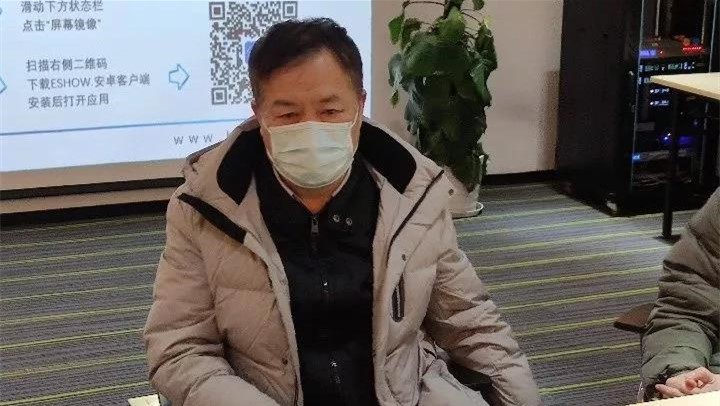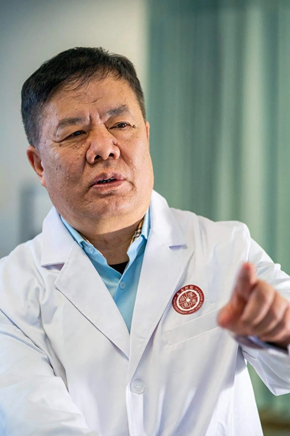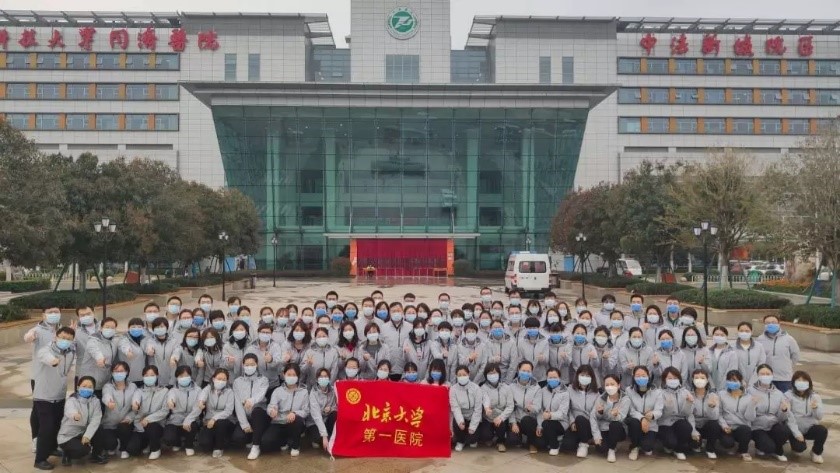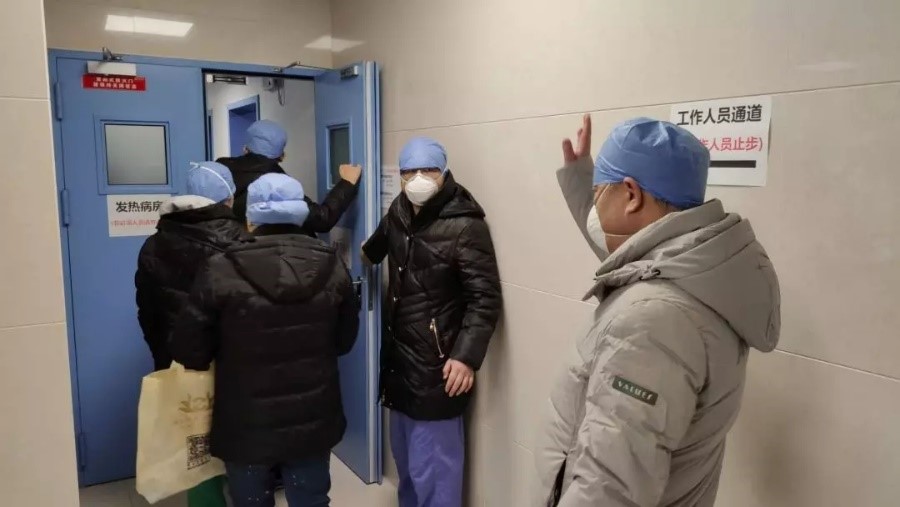Liu Xinmin: Risking lives to fight the long-term battle against COVID-19
Sep 04, 2020
Peking University, September 4, 2020: After a three-month life-and-death battle against the COVID-19 pandemic, Liu Xinmin, president of Peking University First Hospital (PUFH), returned to Beijing safe and sound. However, the battle is not over. Confronted with the now global nature of the pandemic, Liu said although significant success has been achieved in Wuhan, this is only the first half of the anti-pandemic war. “In order to defeat the virus, we have to prevent and control the epidemic situation on the one hand, as well as preparing for routine medical duties,” Liu added.
Liu Xinmin
Coping with challenges on the front line
Liu was a chief medical expert during the anti-SARS war in 2003. Facing the COVID-19 pandemic, Liu felt that it is a duty to respond to national calls and rush to the front line.
Despite his experience, Liu was still shocked by the severity of the situation upon arrival in Wuhan. “When we arrived in Wuhan on February 1, our airplane was the only one at the airport, and on the way to Wuhan nothing but ambulances or police cars could be seen. Needless to say, numerous inexpressible feeling came across us all,” Liu recounted.
The first problem to arise was a lack of hospital beds, so the reconstruction of the inpatient wards became the top priority. In Liu’s opinion, it is not easy to reconstruct inpatient wards according to the patient admission criteria of infectious disease, not to mention the supporting facilities such as oxygen supply and respirators or the division between clean, semi-contaminated, and contaminated zones.
After reconstructing the inpatient wards, Liu and his team members aimed to decrease the fatality rate of their patients. They employed a multi-disciplinary team method, which provided personalized treatment for every patient, and applied remote medical consultation. Moreover, the team put emphasis on patients’ mental health, helping build up their confidence in recovery through consultations as well as more personal touches such as sending loving cards. They also advocated combined therapy of traditional Chinese and Western medicine.
Thanks to the unremitting effort of Liu’s team, the fatality rate in Sino-French City Branch of Tongji Hospital in Wuhan was reduced from 6% to 2.8%. During the nearly 60 days after taking over the special ward, the medical team from PUFH received and cured 113 severe and critical patients, 100 of whom were discharged after treatment. “As a medical team from PUFH, we have made a due contribution to the front,” Liu said.
Liu and his medial team from PUFH
Calling for new reforms
At present, it is the norm for medical institutions to contain the virus outbreak and subsequently to resume normal work. From Liu’s perspective, both roles are indispensable. Only based on the good control of epidemic situations can medical routine duties be continued. Each public health crisis can teach human beings a lesson. No matter whether it is SARS in 2003 or COVID-19 this year, all have challenged the system of social governance and also brought about profound reforms in hospital administration.
During his quarantine period, Liu has wondered how the development of disciplines in general hospitals can meet the needs of society and how to nip such an epidemic situation in the bud before it gets any worse. A few of his ideas follow:
First, it is necessary to strengthen the construction of infectious disease discipline. “There were few patients contracted serious infectious disease before, and the social status of medical staff was inferior. Now it is time to reform,” Liu said.
Second, critical-care medicine deserves more attention, and hospital critical care and emergency capability need to be improved. In the administrative respect, general hospitals should reorganize ICU resources of different disciplines, and hence establish a dynamic platform for both hospital and national emergency.
Third, enhancing the teaching and training system of general medicine is also necessary. This epidemic situation has exposed deficient knowledge about critical care as well as infectious disease treatment. In the future, general hospitals should stress clinician training in general medicine, public health, and infection control as part of routine duties.
Apart from focusing on the scale of general hospitals, Liu further focuses on the reform of grass-roots units. “COVID-19 reminds us of what kind of medical workers we should train in the future,” Liu said. In his view, both SARS and COVID-19 have attached importance to strong grass-roots units, which form the first line of defense against the epidemic. It would be a shortcoming if all patients bypassed the grass-roots medical units such as community health service centers and village clinics and poured into general hospitals where medical resources are limited. Nonetheless, the key to strengthening the grass-roots units lies in developing people with talents, especially general practitioners. Liu advocated the improvement in the treatment of grass-roots medical workers and completing their training system.
The virus is merciless, but the world is full of love and hope. The past loss is irretrievable, but the future is still manageable. In the face of a long-term anti-epidemic struggle, to win means to reform the system of social governance and hospital administration until the virus is ultimately brought under control.
Written by: Zhou Meng
Edited by: Huang Weijian, Sam Jones
Photo Credit to: Peking University First Hospital
Sources: Peking University First Hospital, Health News, The Beijing News, China Hospital CEO



